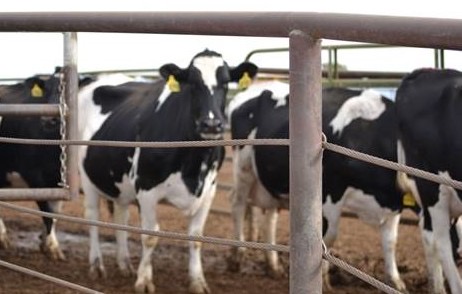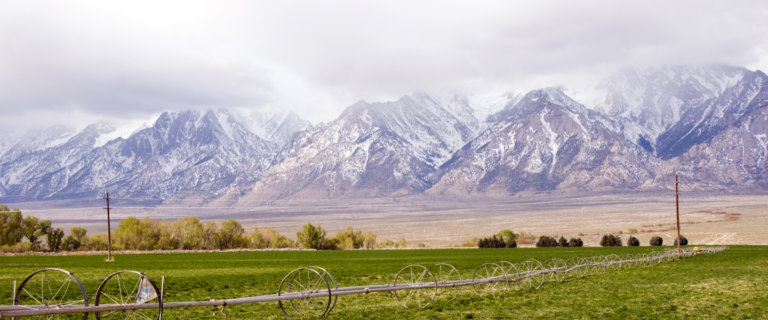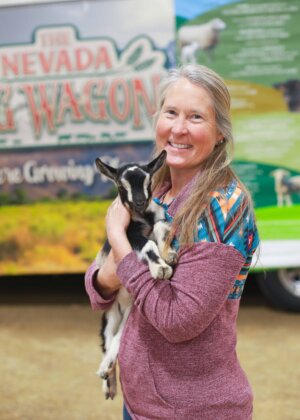Interstate movement requirements for dairy cattle during H5N1 outbreak

The USDA has issued a federal order requiring testing for interstate movement and detection reporting
Guidance has been updated below to reflect the allowance of lactating dairy cows consigned to a sale barn in Nevada for subsequent interstate movement to a slaughter facility to move without a negative test.
The U.S. Department of Agriculture’s (USDA) Animal and Plant Health Inspection Service (APHIS) announced a Federal Order requiring testing for Highly Pathogenic Avian Influenza (H5N1) in lactating dairy cattle prior to interstate movement. In addition, detections of H5N1 must be reported to the USDA APHIS. This order goes into effect Monday, April 29, 2024.
As of April 26, 2024, detections of H5N1 in dairy cattle have not been reported in Nevada.
Please review the following requirements and recommendations. This is an evolving situation, and requirements are subject to change with minimal notice. Please continue to monitor your email and the Nevada Department of Agriculture (NDA) for up-to-date information.
Animal movement
The NDA has updated entry requirements in compliance with this order requiring a negative test for Influenza A virus from an approved National Animal Health Laboratory Network (NAHLN) lab to be documented on a Certificate of Veterinarian Inspection (CVI) within seven (7) days prior to movement. Dairy producers should work with their veterinarian to arrange for testing prior to transport. Nevada producers moving lactating dairy cattle out of state should reference the updated entry guidelines for the state to which they are traveling.
Nonlactating dairy cattle, including heifers, dry cows and bull calves, are not currently subject to testing for interstate movement due to their risk profile. Cattle traveling direct to slaughter from the owner do not require testing. Lactating dairy cows consigned to a sale barn in Nevada for subsequent interstate movement to a slaughter facility do not require a negative test.
Costs
APHIS will reimburse for Influenza A testing at NAHLN laboratories associated with this event for the following submission reasons:
- Suspect cattle: Suspected cases should be reported to the NDA State Veterinarian at diseasereporting@agri.nv.gov.
- Apparently healthy cattle that have been exposed to or epidemiologically linked to suspect or confirmed positive HPAI cattle.
- Sick or dead domestic animals near affected premises.
- Sick or dead wildlife (reason for submission must indicate emerging event).
- Monitoring of healthy cattle via bulk tank samples.
Costs for sample collection and shipping will not be covered.
Detections
Any positive detections of Influenza A must be reported to the NDA State Veterinarian at diseasereporting@agri.nv.gov and USDA APHIS at HPAI.Results@usda.gov. More information on testing is available from APHIS.
Biosecurity
Good health safety practices are important to protecting the herd health.
- Monitor for Sick Animals: Producers should monitor herds closely for cattle with clinical signs of disease.
- Movement of Cattle: Movement of cattle should be minimized; movement of cattle should be focused on preventing movement of disease.
- Vehicles, Equipment, and People on the Farm: Producers should limit the movement of vehicles and visitors on and off livestock and poultry premises and establish dedicated routes for vehicles that do come onto the premises.
- Wildlife Management: Producers should monitor and report any odd behaviors and die offs in domestic and wild animals immediately.
- Worker safety: Use of personal protective equipment (PPE) is recommended for personals working with or around cattle or materials potentially contaminated with H5N1. Avoid rubbing eyes, eating, drinking, smoking, chewing gum, and other such activities in and around areas with cattle. Wash hand regularly.
The Food and Drug Administration (FDA) maintains that the meat and dairy supply remain safe as products from sick cows do not enter the food supply, and milk pasteurization has continuously proven to inactivate bacteria and viruses in milk. Since raw milk is illegal in Nevada, all commercially available milk and dairy products should be safe for consumption. In addition, the Centers for Disease Control and Prevention (CDC) has not found changes to the virus that would make it more transmissible to humans. The current risk to the public remains low.
For the most up-to-date information on H5N1, please visit aphis.usda.gov/livestock-poultry-disease/avian/avian-influenza/hpai-detections/livestock.
For additional questions, please contact diseasereporting@agri.nv.gov.
Related Articles
Become a Member

